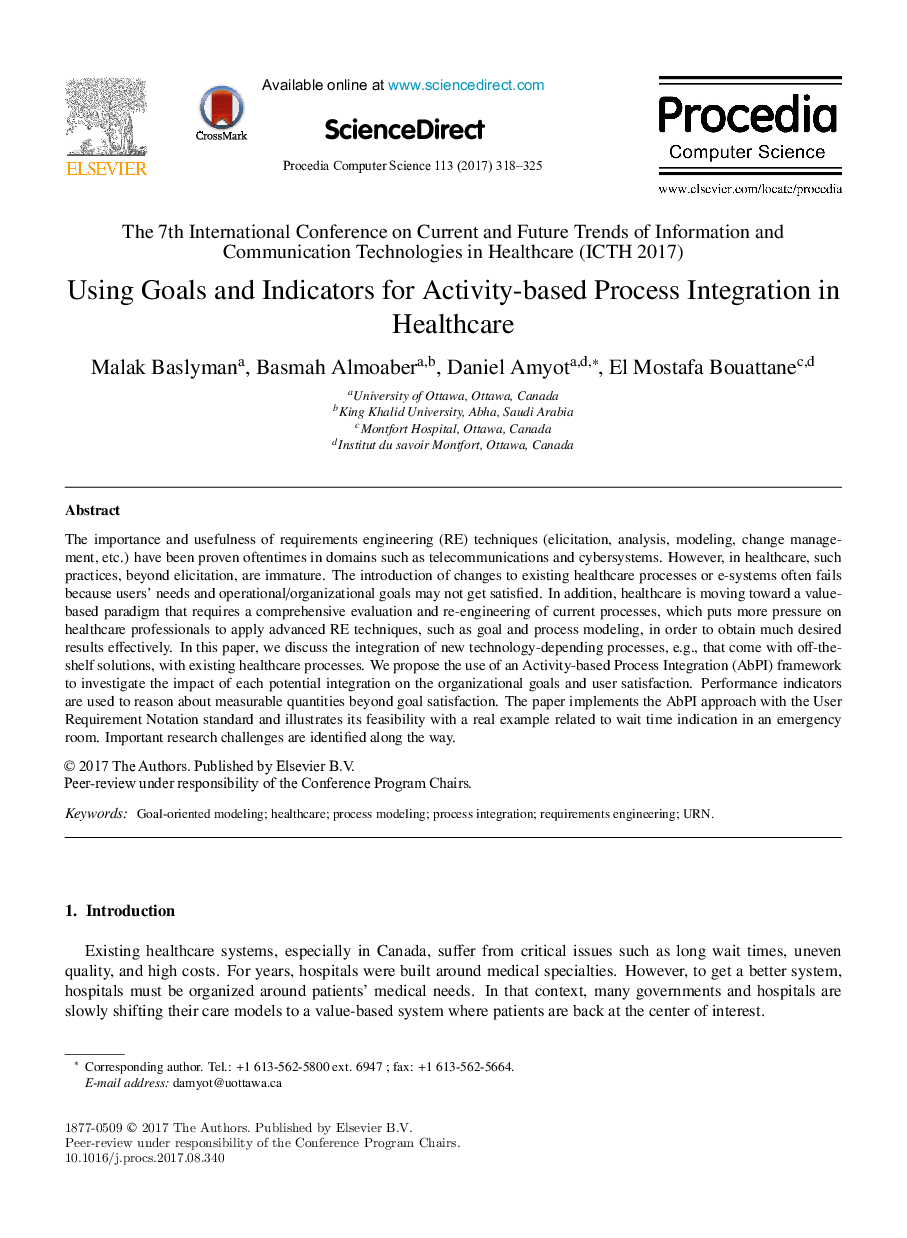| Article ID | Journal | Published Year | Pages | File Type |
|---|---|---|---|---|
| 4960729 | Procedia Computer Science | 2017 | 8 Pages |
The importance and usefulness of requirements engineering (RE) techniques (elicitation, analysis, modeling, change management, etc.) have been proven oftentimes in domains such as telecommunications and cybersystems. However, in healthcare, such practices, beyond elicitation, are immature. The introduction of changes to existing healthcare processes or e-systems often fails because users' needs and operational/organizational goals may not get satisfied. In addition, healthcare is moving toward a value-based paradigm that requires a comprehensive evaluation and re-engineering of current processes, which puts more pressure on healthcare professionals to apply advanced RE techniques, such as goal and process modeling, in order to obtain much desired results effectively. In this paper, we discuss the integration of new technology-depending processes, e.g., that come with off-the-shelf solutions, with existing healthcare processes. We propose the use of an Activity-based Process Integration (AbPI) framework to investigate the impact of each potential integration on the organizational goals and user satisfaction. Performance indicators are used to reason about measurable quantities beyond goal satisfaction. The paper implements the AbPI approach with the User Requirement Notation standard and illustrates its feasibility with a real example related to wait time indication in an emergency room. Important research challenges are identified along the way.
